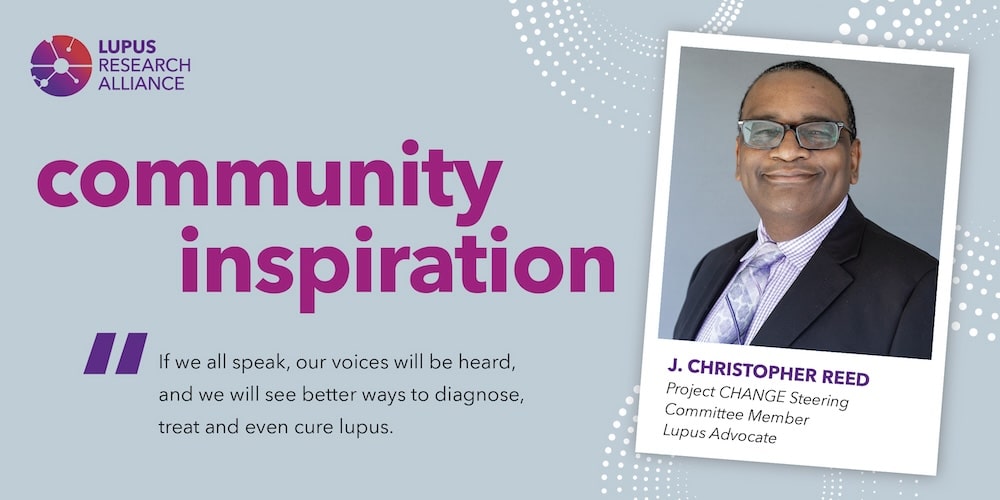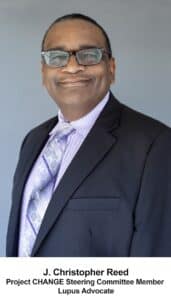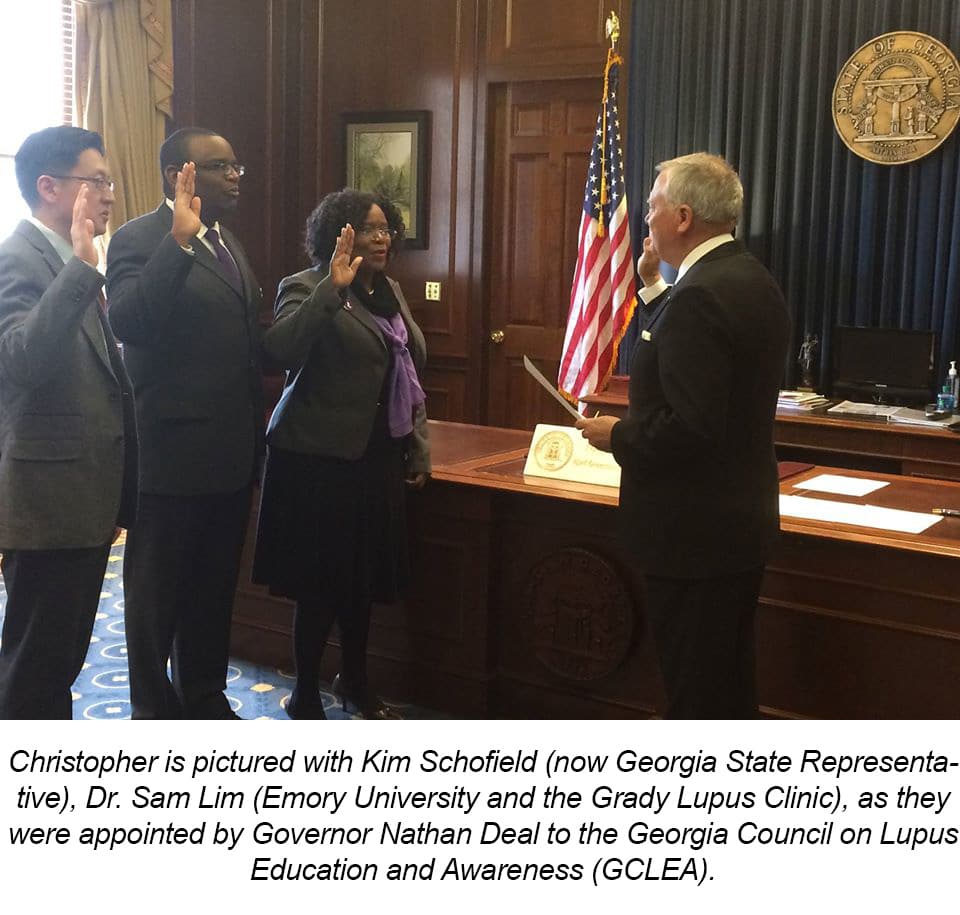Meet Unstoppable Advocate for Minority Health Christopher Reed

Meet Unstoppable Advocate for Minority Health Christopher Reed
 Determined to alleviate healthcare disparities for minorities, J. Christopher Reed, JD, urges our lupus community to use the power of National Minority Health Month to spotlight the issue this April.
Determined to alleviate healthcare disparities for minorities, J. Christopher Reed, JD, urges our lupus community to use the power of National Minority Health Month to spotlight the issue this April.
First diagnosed at 16, Christopher fought debilitating lupus symptoms to graduate college in eight years and then Tulane University Law School in three. Throughout college and upon graduation, barriers to accessing healthcare hit him head on. Whenever Christopher was too ill to be enrolled, he couldn’t be covered under his parents’ medical insurance because he wasn’t a student. And during the one month between being a law student and his first job as an attorney, he once again had no health insurance while facing lupus nephritis and its treatment side effects.
“April is the time to bring light to an issue that is rampant in the U.S. – the absence of healthcare and follow-up healthcare in minority populations,” he noted. “Health equity can only be achieved when everyone has access to affordable healthcare.”
Christopher is particularly passionate about making sure that minority populations are fairly represented in lupus clinical trials. “Without diversity in lupus research, we can’t understand the genetics behind the disease, and we will never find better treatments or a cure.”
To help ensure that diversity in clinical research is achieved, Christopher is working with the LRA’s clinical research affiliate Lupus Therapeutics as a member of the Steering Committee of Project CHANGE – a community-driven approach to address systemic challenges contributing to the underrepresentation of people of color, particularly Black people, in lupus clinical trials.

Christopher sees education as a critical solution. Having found participating in a clinical trial much like seeing his regular physician, he often tells people that their fears about joining a trial, while understandable, may lessen if they learn more about the process. “In our past, clinical trials were not performed properly, but things have changed. Now, these studies are highly regulated, and there are so many people working in the best interest of the patient to make sure trials are safe and efficient. I advise educating yourself and finding out about the trials in your area.” He also believes in learning everything you can about lupus. “I read everything I can. That knowledge enables me to talk to my doctors in a more informed way.”
Seeing people who are getting sicker without the right care is what drives Christopher to do all he can to help. He has volunteered for the Lupus Foundation of America’s Georgia Chapter for many years, and recently left practicing law to join the nonprofit Sister Love to lobby for improvements to health policy. He also serves on advisory boards for Emory University School of Medicine Division of Rheumatology and the American College of Rheumatology. In addition, Christopher has provided the patient perspective to the LRA’s Research Strategic Planning Committee, led several public health initiatives on lupus, and led a state government advisory council on lupus.
 “I felt that having lupus is my true purpose and it’s been the catalyst to get involved, and most recently to change my career to health policy.”
“I felt that having lupus is my true purpose and it’s been the catalyst to get involved, and most recently to change my career to health policy.”
He urges people to use their voice however they can. “Speak at health fairs and town hall meetings about the disease. Talk to your elected officials about the need for lupus research funding and health equity. Connect with corporate executives about donations to lupus research. Talk to the person at the lunch counter. If we all speak, our voices will be heard, and we will see better ways to diagnose, treat and even cure lupus.”



